How Does Social Media Affect Mental Health?
Social media is a platform where we connect with friends and people, and learn new trends. So, how does social media affect mental health? In this post, we will examine how excessive use of social media invites mental health concerns. We will introduce you to some practical strategies for setting boundaries and creating a balanced approach to avoid health issues.
We enjoy being on social media such as Facebook, Instagram, Snapchat, Twitter, and YouTube because they are undeniably addictive. However, it has a flip side to it. Excessive usage can lead to depression, addiction, anxiety, FOMO (fear of missing out), isolation, unhealthy comparisons, and other mental issues.
Up to 58% of Americans agree that social media negatively impacts mental well-being.
This platform gives a glimpse into the dreamy lives of others which might not be as perfect as it has been displayed. The inevitable feeling of comparison with online personas can affect mental well-being to the core.
So, is social media is friend or foe?
In this post, we will examine both the positive and negative aspects of social media and practical tips to set boundaries to create a well-balanced online experience.
Read them to enjoy social media without sacrificing your mental well-being.
First, let’s look at the stats on the impact of social media on the mental health of users.
Key Stats: Impact of Social Media on Mental Health
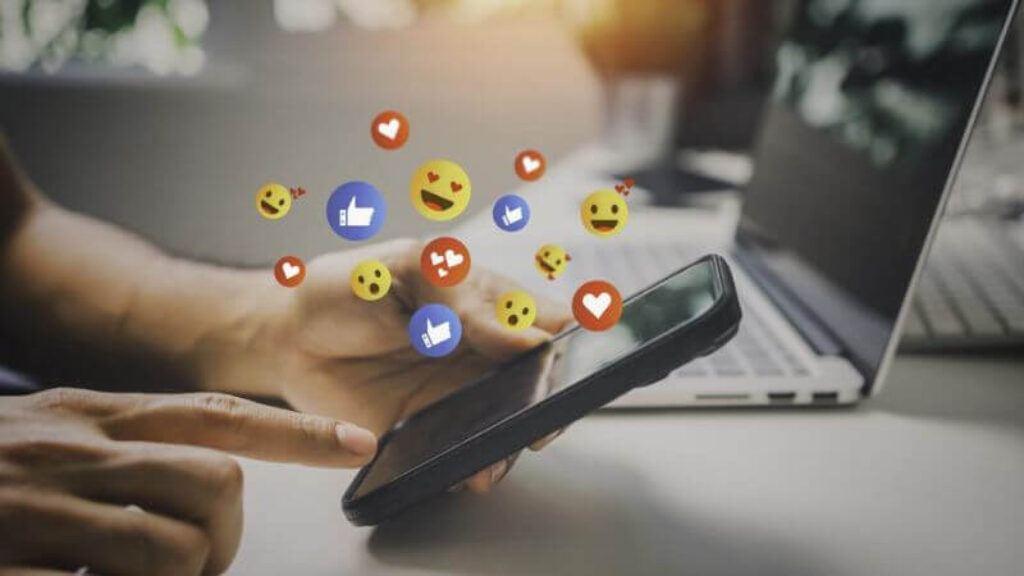
Social Media and Mental Health: Positive Vs. Negative Aspects
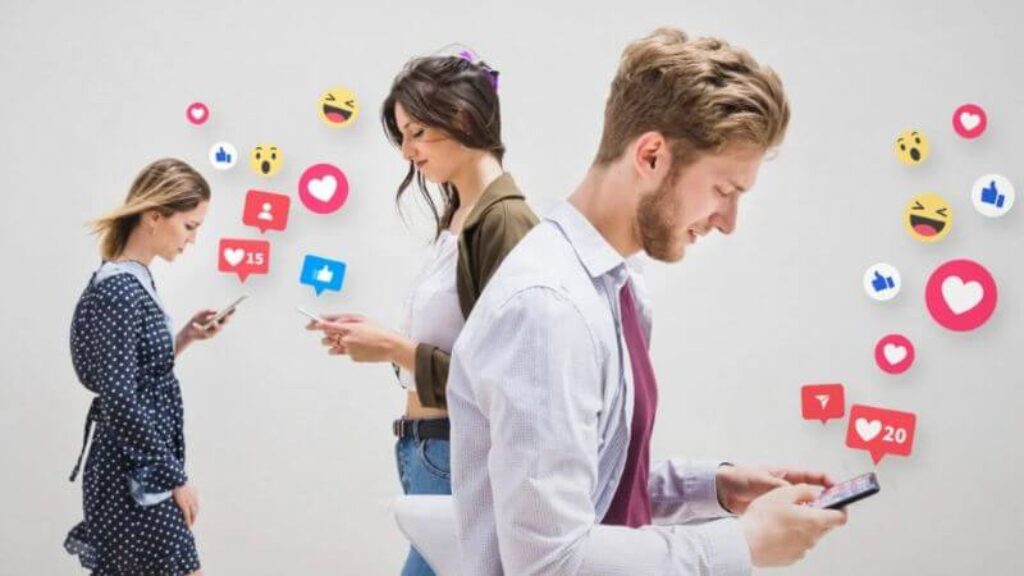
Social media and mental health have a complicated relationship. Humans are social creatures who require companionship to be happy and successful. Plus, the strength of the connections has a great impact on satisfaction and obviously mental health.
Having strong connections with other people can boost self-esteem, prevent loneliness, lower anxiety, depression, and stress, and add comfort to life. On the contrary, lack of strong social connections has an adverse effect on emotional well-being and mental health. This is why the mental health apps market is booming as the demand for addressing health issues is at its peak.
Although social media provides a platform to connect with friends and family, it does negatively impact user’s mental health. Let’s dive deeper into the positive and negative aspects of social media on one’s mental health.
Positive Aspects of Social Media
Here is a list of the positive effects of social media.
Negative Aspects of Social Media
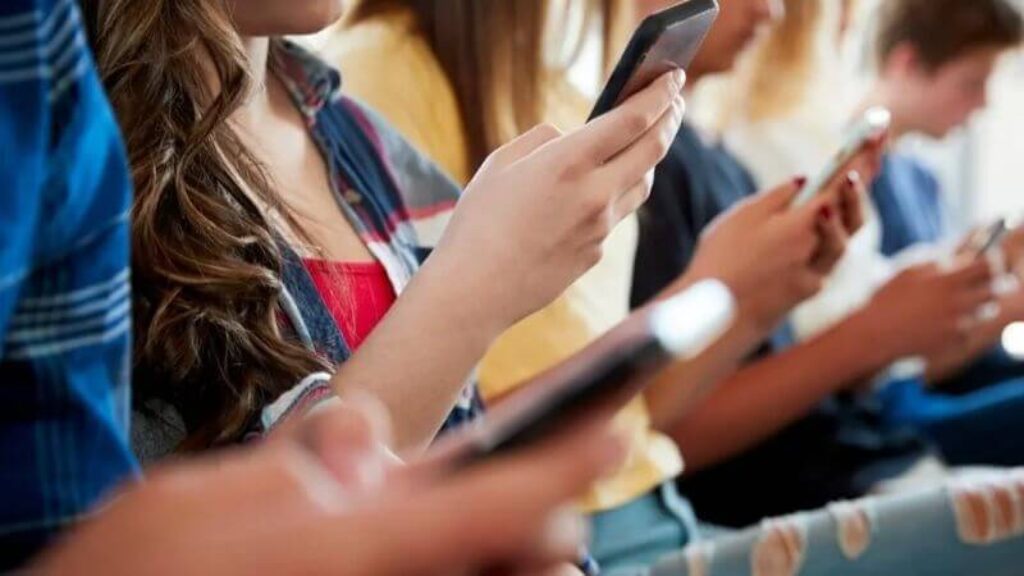
While this platform has several positive aspects, it does have negative impacts. Here is a list of the negative effects of social media.
So, these were some positive and negative effects of social media. Now you know how does social media affect the mental health of users.
Let’s move to the best part i.e. practical strategies for mindful usage of social media to avoid mental health issues.
Top Practical Strategies for Balanced Social Media Use
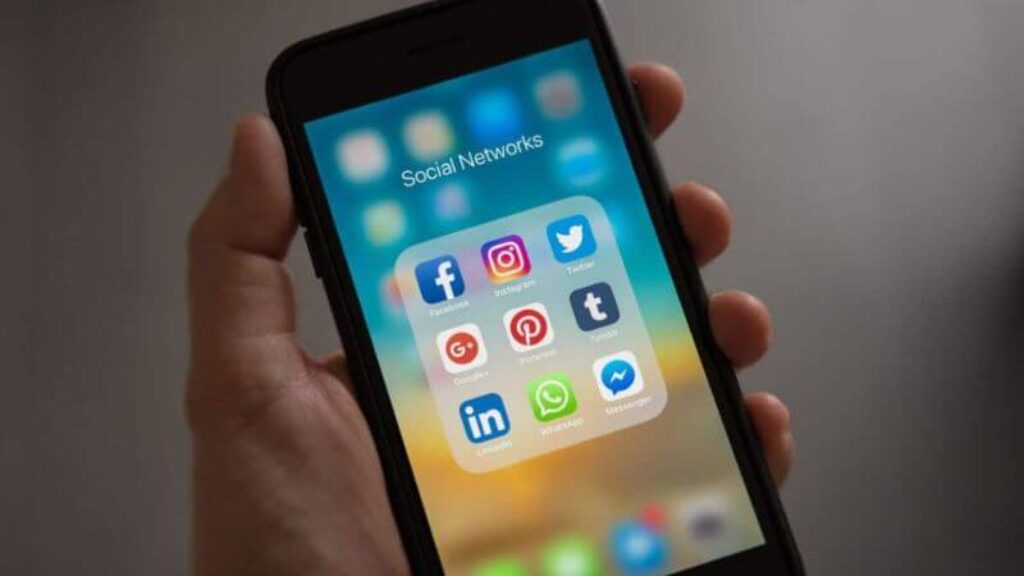
Social media’s effects on mental health are no more a secret. However, achieving balanced social media use is imperative in today’s world for maintaining mental well-being. Here is a list of practical strategies to strike the right balance.
Reducing Online Time
We are not asking you to cut back drastically on your social media use to enhance your mental well-being. A study in Pennsylvania found that minimizing social media use to 30 minutes every day can bring significant positive changes in levels of anxiety, sleep problems, depression, isolation, and FOMO.
The idea is to reduce online time which is time you spend on your phone. You can follow these steps to reduce screen time.
Spend More Time With Offline Friends
Earlier we discussed connections, but it can be more impactful when it is done one-on-one. Talking with a friend or family member face-to-face can keep you happy, healthy, and away from social media. You can strengthen your relationship with your family, friends, and acquaintances without relying on social media by:
Shift Your Focus
The two primary reasons for using social media are killing time when lonely or purely a habit. Here, you can completely focus on the motivation that drives you towards using social media. Focusing on positive aspects of social media also improves your overall experience.
If you are finding answers to your questions then consider sticking to it. Avoid using your phone to kill time or check how many likes or comments you get on your post.
So, whenever you feel an urge to access social media, take a moment and find out the actual motivation behind it. If you are using social media to pause your real life then ask yourself ‘Is there any other healthy option?
If you are feeling lonely, you can call any friend or family member for a coffee. Whereas, if you are getting depressed, consider going to the gym and burning some calories for your own good.
Active Participation
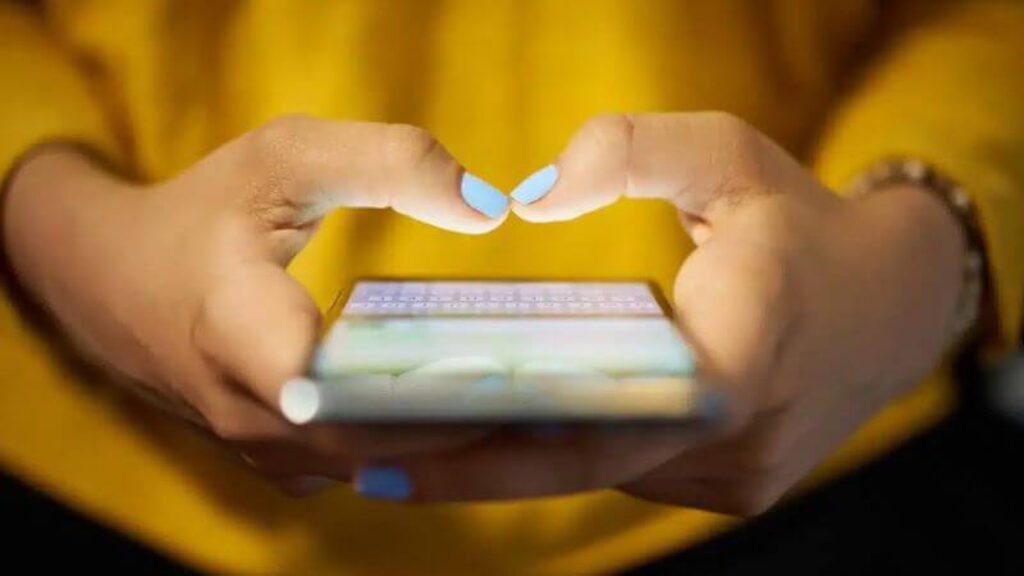
What type of social media user you are, active or passive? If you are a passive user, you find yourself mostly scrolling through the feeds, posts, reels, and videos. Plus, interactions on those types of posts don’t provide any relevancy to you. This leads to isolation and loneliness.
Active users keenly participate in social media posts that keep them engaged with other like-minded people. This eliminates loneliness and feelings of isolation. So, if you are using social media, try taking an active part in interactions.
Practice Mindfulness
Practice mindfulness is all about being aware of the impact of social media on mental health and taking steps to use these platforms mindfully. Understand how you are feeling after using social media; connected, happy, envious, or anxious. Identify triggers by knowing the type of situation or content that affects your mood, it can be unrealistic beauty standards, weird comparisons, or bias in the feed.
Unfollow accounts that make you feel miserable about yourself or those profiles that constantly share negative posts. Follow those accounts that motivate and inspire you. Focus more on positive interactions. Additionally, use social media to express gratitude towards good things in your life without comparing it with others’ lives.
Frequently Asked Questions About How Does Social Media Affect Mental Health
Does social media cause depression and anxiety?
Research has highlighted that excessive social media use increases the risk of anxiety, depression, loneliness, and other mental health issues.
Why does social media make me feel bad?
Constant comparison with perfect online personas, unrealistic beauty standards, cyberbullying, and bias lowers self-esteem and increases feelings of inadequacy, and loneliness among users.
How can I use social media more healthily?
You need to cut back on social media and schedule breaks throughout. Consider unfollowing accounts that promote negativity. Use social media mindfully and spend more time with the world outside these platforms.
What to do if social media is negatively impacting my mental health?
If you feel that your mental health is deteriorating day by day, you can contact a registered mental health organization to get support. You can also talk to a therapist or counselor to get assistance.
Is there a “healthy” amount of time to spend on social media?
There is no healthy amount of time to spend on social media platforms. You should avoid using it excessively. If you are feeling stressed, anxious, and unproductive after using social media, these are signs to cut back on usage.
Wrapping Up: How Does Social Media Affect Mental Health?
Social media has a massive influence on user’s mental health. While social media offers a platform for self-expression, building community, and connecting with people, it can cause anxiety, isolation, and inadequacy.
Social media’s negative effects boil down to the amount of time spent on these platforms. Consider using these platforms mindfully for your own good.
Now you must have found the answer to ‘How does social media affect mental health and tips to strike the right balance.
We hope you found this post helpful. Do tell us how much time you spend on social media, does it impacts your mental health, and what measures you are taking to improve your emotional well-being.











